Electric Boogaloo
Original title: Electric Boogaloo: The Wild, Untold Story of Cannon Films
IMDb RATING
7.4/10
6.3K
YOUR RATING
The history of the independent film company, The Cannon Film Group, Inc.The history of the independent film company, The Cannon Film Group, Inc.The history of the independent film company, The Cannon Film Group, Inc.
Menahem Golan
- Self - Cannon Chairman
- (archive footage)
Itzik Kol
- Self - Production Executive
- (archive footage)
Roni Ya'ackov
- Self - Production Executive
- (as Rony Yakov)
Yftach Katzur
- Self - Actor
- (as Yiftach Katzur)
- Director
- Writer
- All cast & crew
- Production, box office & more at IMDbPro
Featured reviews
When Israeli cousins Menahem Golan and Yoram Globus took over The Cannon Group in 1979, cinema had little idea what it was in for. With the company in a dyer financial situation, Golan and Globus began churning out pictures of questionable quality at an unnerving rate, making a small profit with the odd micro-hit that quickly added up. Soon enough, the exploitation pioneers were buying up cinema chains, paying movie stars ludicrous amounts of money, taking over Cannes, and releasing some of the most diabolical and insane movies of 1980's. Electric Boogaloo tells the rapid rise and even faster implosion of the notorious studio, with the people both in front of and behind the camera telling their own anecdotes of the madcap antics that seemed to engulf their every production.
Director Mark Hartley has made a career in documenting exploitation cinema with Not Quite Hollywood (2008) and Machete Maidens Unleashed! (2010), and Electric Boogaloo is undoubtedly his most fun. Packed with clips of such cinematic disasters as Enter the Ninja (1981), Hercules (1983), Breakin' 2: Electric Boogaloo (1984) and Superman IV: The Quest for Peace (1987), the film lambastes Cannon as much as it adores their persistence, levelling the field by also showing us their more interesting efforts - the likes of Lifeforce (1985) and The Texas Chainsaw Massacre 2 (1986), both directed by Tobe Hooper - and the films that were surprisingly great, such as Runaway Train (1985) and Barfly (1987). But this isn't just a collection of clips from some of the most outlandish films ever made, Hartley ensures that the film is highly informative about the 'creative' minds behind the company and the reasons for its inevitable fall from grace.
Amongst the interviewees are John G. Avildsen, Franco Nero, Dolph Lundgren, Robert Forster, Bo Derek and Alex Winter, all telling stories that will have you laughing as well as questioning just how the Israeli's got away with it for so long. Some of it is brutal, with Golan especially coming across as an ego-maniacal tyrant with little care for the safety of his crew and no understanding of the American audience he was targeting. Yet it's all told with a nostalgic fondness, celebrating the fact that these were little guys who actually made it, and doing it all on their own terms. They were, after all, responsible for Chuck Norris's career and the prolonging of Charles Bronson's (although it's questionable as to whether or not that's a good thing), and were eager to give great but fading directors such as Jean-Luc Godard, John Cassavetes and Franco Zeffirelli another shot with complete artistic control. It's a strange story - Golan and Globus clearly adored cinema but didn't seem to understand it - but this is a success story like no other, and insomniacs with little to do at night but watch TV have a lot to thank them for.
Director Mark Hartley has made a career in documenting exploitation cinema with Not Quite Hollywood (2008) and Machete Maidens Unleashed! (2010), and Electric Boogaloo is undoubtedly his most fun. Packed with clips of such cinematic disasters as Enter the Ninja (1981), Hercules (1983), Breakin' 2: Electric Boogaloo (1984) and Superman IV: The Quest for Peace (1987), the film lambastes Cannon as much as it adores their persistence, levelling the field by also showing us their more interesting efforts - the likes of Lifeforce (1985) and The Texas Chainsaw Massacre 2 (1986), both directed by Tobe Hooper - and the films that were surprisingly great, such as Runaway Train (1985) and Barfly (1987). But this isn't just a collection of clips from some of the most outlandish films ever made, Hartley ensures that the film is highly informative about the 'creative' minds behind the company and the reasons for its inevitable fall from grace.
Amongst the interviewees are John G. Avildsen, Franco Nero, Dolph Lundgren, Robert Forster, Bo Derek and Alex Winter, all telling stories that will have you laughing as well as questioning just how the Israeli's got away with it for so long. Some of it is brutal, with Golan especially coming across as an ego-maniacal tyrant with little care for the safety of his crew and no understanding of the American audience he was targeting. Yet it's all told with a nostalgic fondness, celebrating the fact that these were little guys who actually made it, and doing it all on their own terms. They were, after all, responsible for Chuck Norris's career and the prolonging of Charles Bronson's (although it's questionable as to whether or not that's a good thing), and were eager to give great but fading directors such as Jean-Luc Godard, John Cassavetes and Franco Zeffirelli another shot with complete artistic control. It's a strange story - Golan and Globus clearly adored cinema but didn't seem to understand it - but this is a success story like no other, and insomniacs with little to do at night but watch TV have a lot to thank them for.
For those of us that grew up in the VHS age of the 1980's, Cannon Films was a studio that provided us with much of our movie watching excitement. New Year's Evil (1980), Enter the Ninja (1981), Invasion U.S.A. (1985) and Cobra (1986) are just a few of the titles that helped propel Cannon Films in its heyday and is the focus of the new documentary Electric Boogaloo: The Wild, Untold Story of Cannon Films.
Israeli cousins Menahem Golan and Yoram Globus bought Cannon films for $500,000 in 1979 and created a film sausage factory where films were fast tracked to the screen based on high risk concepts or eye-catching movie posters ("At Cannon, 52 pictures a year wasn't enough").
Immediately, the two relatives saw a market for B-movie action films and started to build their empire on the backs of such franchises as Death Wish and various Chuck Norris vehicles such as Delta Force and the Missing in Action series.
Director Mark Hartley is no stranger to documenting film on film. Harley directed Not Quite Hollywood: The Wild, Untold Story of Ozploitation in 2008 and Machete Maidens Unleashed! in 2010. Hartley has a formula that works when exploring niche genres in film and stays the course with Electric Boogaloo: The Wild, Untold Story of Cannon Films.
Clips of films (everything from American Ninja, Texas Chainsaw Massacre II and Bloodsport are intertwined with interviews from familiar faces such as Molly Ringwald, Alex Winter, Dolph Lundgren and Richard Chamberlain. The doc takes us back to the early 80's and Hartley covers as many bases as possible when docu-reminiscing through such mindless yet wildly entertaining films that shaped many of our youths.
For a walk down memory lane, Electric Boogaloo: The Wild, Untold Story of Cannon Films is one hell of a fun ride. But it's a safe ride and one that doesn't give us any real deep deep deep insight into anything and just skims the surface of historical reference. When Electric Boogaloo does try and dive beyond an E: True Hollywood Story expose (such as a bit on diva Sharon Stone) it is met with a shrug of the shoulders and a 'Yea, not surprised' reaction from a target audience that was much more appreciative when the film simply highlighted films that we thought were even greater than the invention of sliced bread.
Electric Boogaloo: The Wild, Untold Story of Cannon Films is a tad overlong at 105 minutes but breathes new life into their decaying body with every newly introduced film that sparks memories of an age long gone. We do get educated on how now more popular directors got their start (Jean-Luc Godard with King Lear, Barbet Schroder with Barfly and John Cassavetes with Love Streams) with Cannon much like Roger Corman started the careers of Ron Howard, Martin Scorcese and James Cameron. And it was interesting to see the downfall of the company with big budget backed busts such as Superman IV: The Quest for Peace and Masters of the Universe.
Menahem Golan (who recently passed away in August 2014) and Yoram Globus did not participate in the documentary so any opinion of their business practices are told by the many interviewed stars and staff that were involved in their pictures including Cassandra Peterson (Elvira), Bo Derek, Michael Dudikoff and Elliot Gould.
Electric Boogaloo: The Wild, Untold Story of Cannon Films felt formulaic. It went through the motions and tired harder to tap into our memories than it did trying to tap into the backlots and secrets surrounding the studio (after all, it is titled 'The Wild, Untold Story'). Still, for someone who has seen every one of the films that was displayed on screen – and some, multiple times - Electric Boogaloo: The Wild, Untold Story of Cannon Films was like putting on your favorite pair of shoes that have long outlived their usage date. It had me reaching into my VHS collection to re-screen films I have not paid attention to in decades. And for that, Mark Hartley deserves credit.
www.killerreviews.com
Israeli cousins Menahem Golan and Yoram Globus bought Cannon films for $500,000 in 1979 and created a film sausage factory where films were fast tracked to the screen based on high risk concepts or eye-catching movie posters ("At Cannon, 52 pictures a year wasn't enough").
Immediately, the two relatives saw a market for B-movie action films and started to build their empire on the backs of such franchises as Death Wish and various Chuck Norris vehicles such as Delta Force and the Missing in Action series.
Director Mark Hartley is no stranger to documenting film on film. Harley directed Not Quite Hollywood: The Wild, Untold Story of Ozploitation in 2008 and Machete Maidens Unleashed! in 2010. Hartley has a formula that works when exploring niche genres in film and stays the course with Electric Boogaloo: The Wild, Untold Story of Cannon Films.
Clips of films (everything from American Ninja, Texas Chainsaw Massacre II and Bloodsport are intertwined with interviews from familiar faces such as Molly Ringwald, Alex Winter, Dolph Lundgren and Richard Chamberlain. The doc takes us back to the early 80's and Hartley covers as many bases as possible when docu-reminiscing through such mindless yet wildly entertaining films that shaped many of our youths.
For a walk down memory lane, Electric Boogaloo: The Wild, Untold Story of Cannon Films is one hell of a fun ride. But it's a safe ride and one that doesn't give us any real deep deep deep insight into anything and just skims the surface of historical reference. When Electric Boogaloo does try and dive beyond an E: True Hollywood Story expose (such as a bit on diva Sharon Stone) it is met with a shrug of the shoulders and a 'Yea, not surprised' reaction from a target audience that was much more appreciative when the film simply highlighted films that we thought were even greater than the invention of sliced bread.
Electric Boogaloo: The Wild, Untold Story of Cannon Films is a tad overlong at 105 minutes but breathes new life into their decaying body with every newly introduced film that sparks memories of an age long gone. We do get educated on how now more popular directors got their start (Jean-Luc Godard with King Lear, Barbet Schroder with Barfly and John Cassavetes with Love Streams) with Cannon much like Roger Corman started the careers of Ron Howard, Martin Scorcese and James Cameron. And it was interesting to see the downfall of the company with big budget backed busts such as Superman IV: The Quest for Peace and Masters of the Universe.
Menahem Golan (who recently passed away in August 2014) and Yoram Globus did not participate in the documentary so any opinion of their business practices are told by the many interviewed stars and staff that were involved in their pictures including Cassandra Peterson (Elvira), Bo Derek, Michael Dudikoff and Elliot Gould.
Electric Boogaloo: The Wild, Untold Story of Cannon Films felt formulaic. It went through the motions and tired harder to tap into our memories than it did trying to tap into the backlots and secrets surrounding the studio (after all, it is titled 'The Wild, Untold Story'). Still, for someone who has seen every one of the films that was displayed on screen – and some, multiple times - Electric Boogaloo: The Wild, Untold Story of Cannon Films was like putting on your favorite pair of shoes that have long outlived their usage date. It had me reaching into my VHS collection to re-screen films I have not paid attention to in decades. And for that, Mark Hartley deserves credit.
www.killerreviews.com
8cafm
Mark Hartley, the man behind the wildly entertaining documentaries about B-grade films and filmmakers, Not Quite Hollywood (2008) and Machete Maidens Unleashed (2010), premiered his latest and, sadly, last documentary - Electric Boogaloo: The Wild, Untold Story of Cannon Films - in the opening weekend of the 2014 Melbourne International Festival (MIFF).
As with Hartley's previous documentaries, the story at the heart of Electric Boogaloo (its name taken from the film, "Breakin' 2: Electric Boogaloo", the strange sequel to the hit 1984 rap dancing film, "Breakin'") cleverly unfolds through the skillful editing together of myriad eyewitness talking heads and interspersing these with clips from relevant films along with some wonderfully tongue-in-cheek animations. Essentially, Hartley's latest film explores the story behind Cannon films from its inception to its ultimate demise, following the weird and wild careers of crazy Israeli cinephiles-cum-directors-cum-producers-cum-Hollywood B-grade movie moguls, Menahem Golan and Yoram Globus. Theirs is an extraordinary rags-to-riches- rags story and one well worth seeing for yourself. Hartley has a rare gift for storytelling in his documentaries, bringing together a complex panoply of opinions, rants, scathing criticism and fond remembrances, and weaving these all together into a taut, laugh-out-loud, highly entertaining film, and Electric Boogaloo is no exception, as demonstrated by the very enthusiastic reception the film received from the audience at MIFF.
For film lovers and those who grew up with the Golan/Globus catalog in the 1980s with films like Missing in Action, Lifeforce, Treasure of the Four Crowns, American Ninja, Break Dance, Death Wish 2 and its sequels, Masters of the Universe, The Last American Virgin, Cyborg, Superman IV: The Quest for Peace ... the list goes on, and on, and on ... this film is pure joy and something of a nostalgia trip. In this regard the film does have a sad side as it follows how the dreams of Golan and Globus would eventually fizzle up in bankruptcy and acrimony, leaving behind a library of impossibly bizarre creations that are truly weird and wonderful. Electric Boogaloo will no doubt prompt you to want to revisit many of these titles or discover others for the first time. I suspect that, being a true lover of B movies, this is ultimately one of Hartley's aims.
As with Hartley's previous documentaries, the story at the heart of Electric Boogaloo (its name taken from the film, "Breakin' 2: Electric Boogaloo", the strange sequel to the hit 1984 rap dancing film, "Breakin'") cleverly unfolds through the skillful editing together of myriad eyewitness talking heads and interspersing these with clips from relevant films along with some wonderfully tongue-in-cheek animations. Essentially, Hartley's latest film explores the story behind Cannon films from its inception to its ultimate demise, following the weird and wild careers of crazy Israeli cinephiles-cum-directors-cum-producers-cum-Hollywood B-grade movie moguls, Menahem Golan and Yoram Globus. Theirs is an extraordinary rags-to-riches- rags story and one well worth seeing for yourself. Hartley has a rare gift for storytelling in his documentaries, bringing together a complex panoply of opinions, rants, scathing criticism and fond remembrances, and weaving these all together into a taut, laugh-out-loud, highly entertaining film, and Electric Boogaloo is no exception, as demonstrated by the very enthusiastic reception the film received from the audience at MIFF.
For film lovers and those who grew up with the Golan/Globus catalog in the 1980s with films like Missing in Action, Lifeforce, Treasure of the Four Crowns, American Ninja, Break Dance, Death Wish 2 and its sequels, Masters of the Universe, The Last American Virgin, Cyborg, Superman IV: The Quest for Peace ... the list goes on, and on, and on ... this film is pure joy and something of a nostalgia trip. In this regard the film does have a sad side as it follows how the dreams of Golan and Globus would eventually fizzle up in bankruptcy and acrimony, leaving behind a library of impossibly bizarre creations that are truly weird and wonderful. Electric Boogaloo will no doubt prompt you to want to revisit many of these titles or discover others for the first time. I suspect that, being a true lover of B movies, this is ultimately one of Hartley's aims.
The name Cannon Films is an evocative one, bringing to mind synonyms like schlock and cut-rate, and it's a well-earned reputation for cheapness. The story of two Israeli guys with a passion for making movies is a noble one, although their questionable business decisions tend to undercut that enthusiasm. Still, their rise and fall make for interesting documentary material, and that's part of what makes "Electric Boogaloo" so good.
The other reason is the testimonial side of things. Rounded up before the camera are a wide-ranging group of people that have had dealings with the studio, and each and every one of them is eager to opine on such a reckless outfit. I can only wonder what venom Christopher Reeves would have in store were he still us today, and I would like to have heard Stallone's views after "Over the Top" (good or bad, can't tell). Chuck Norris is a glaring omission, given his 5-picture deal with them . . . or is he merely content with how it all turned out? But there's the ever-charming Catherine Mary Stewart and the surprisingly mocking Alex Winter offering their input, and both are amusing. There's a lot involved in this; it's really a varied roster.
This is a hugely entertaining movie that moves at a brisk pace and is funny throughout. A lot easier to sit through than most of Cannon's movie's, that's for sure.
Highly recommended.
8/10
The other reason is the testimonial side of things. Rounded up before the camera are a wide-ranging group of people that have had dealings with the studio, and each and every one of them is eager to opine on such a reckless outfit. I can only wonder what venom Christopher Reeves would have in store were he still us today, and I would like to have heard Stallone's views after "Over the Top" (good or bad, can't tell). Chuck Norris is a glaring omission, given his 5-picture deal with them . . . or is he merely content with how it all turned out? But there's the ever-charming Catherine Mary Stewart and the surprisingly mocking Alex Winter offering their input, and both are amusing. There's a lot involved in this; it's really a varied roster.
This is a hugely entertaining movie that moves at a brisk pace and is funny throughout. A lot easier to sit through than most of Cannon's movie's, that's for sure.
Highly recommended.
8/10
...Answer: The Cannon Group! Started in Israel by Manahem Golan and his cousin, Yoram Globus, in the 1970s, with Golan being the more flamboyant creative force and Globus being more of the practical money man, they churned out schlock movies for about 14 years, about ten of those being in the United States for a global market. They were all about rushed scripts including Manahem making up scripts as he filmed, getting one or maybe two big names that maybe had seen better days to draw in audiences, lots of violence, bad special effects, and lots of sex and nudity. I always wondered where those trashy movies that Showtime would show late at night thirty years ago came from, and this documentary answered that question for me. The documentary moves at a rapid pace, with some of the stars that were in the films that have a good sense of humor about the whole thing such as Catherine Mary Stewart (The Apple) and Diane Franklin (The Last American Virgin) telling their stories.
Actually the documentary is a bit of a morality tale about the excesses of the 80's which pretty much overlays the time that the Cannon Group was based in the United States. Cannon Group was doing okay, even if they were making bad movies, until Michael Milken came along (remember, the guy who went to jail for what looks quaint compared to what the banksters did to tank the entire American economy 20 years later?) and managed to raise 300 million dollars for them. Accustomed to making films for just a few million dollars, sometimes less than a million, Cannon Group suddenly went on a spend and expand fest that ultimately brought them to bankruptcy. In the end they were filming and owned theater chains all over the world, and the colossal size of their failures brought them down almost exactly as the 90s began, after the cousins fought and split up and made competing films about the same dance - The Lambada - that opened the same day at the same theater in Los Angeles in 1990. Both films flopped.
Just the shear number of stories is astounding - how the cousins heading Cannon Group wound up making the Alan Quartermain movies with an actress they didn't even want because they confused Sharon Stone with "Romancing the Stone" - they actually wanted Kathleen Turner, how MGM, desperate for some product actually distributed Cannon's films for two years and, in the end, would rather sell out to Ted Turner than keep putting out such tripe, Bo Derek on the hilarious dialogue of "Bolero", and a pretty good director, Franco Zeffirelli, saying that he didn't know how to top himself after he made "Otello" for Cannon and how Manahem Golan was the only producer he'd ever met who truly understood the entire process of filmmaking and had absolutely nothing but praise for Cannon Group!
There have been many small film companies come and go, many from the Depression era in which everybody involved is dead, and their stories are probably are not nearly as interesting as this one. Watch this for the weirdness of it all and - if you are old enough - the nostalgia. One thing you can say about Cannon and the cousins that headed it - they had a willingness to take a risk that is entirely missing from filmmakers and especially their backers today. In fact, if character Max Bialystock from Mel Brooks' "The Producers" had been involved in film rather than the theater, and had been on the level and not an embezzler, he would have BEEN the colorful Manahem Golan, in my humble opinion. Highly recommended if you are interested in more recent film history.
Actually the documentary is a bit of a morality tale about the excesses of the 80's which pretty much overlays the time that the Cannon Group was based in the United States. Cannon Group was doing okay, even if they were making bad movies, until Michael Milken came along (remember, the guy who went to jail for what looks quaint compared to what the banksters did to tank the entire American economy 20 years later?) and managed to raise 300 million dollars for them. Accustomed to making films for just a few million dollars, sometimes less than a million, Cannon Group suddenly went on a spend and expand fest that ultimately brought them to bankruptcy. In the end they were filming and owned theater chains all over the world, and the colossal size of their failures brought them down almost exactly as the 90s began, after the cousins fought and split up and made competing films about the same dance - The Lambada - that opened the same day at the same theater in Los Angeles in 1990. Both films flopped.
Just the shear number of stories is astounding - how the cousins heading Cannon Group wound up making the Alan Quartermain movies with an actress they didn't even want because they confused Sharon Stone with "Romancing the Stone" - they actually wanted Kathleen Turner, how MGM, desperate for some product actually distributed Cannon's films for two years and, in the end, would rather sell out to Ted Turner than keep putting out such tripe, Bo Derek on the hilarious dialogue of "Bolero", and a pretty good director, Franco Zeffirelli, saying that he didn't know how to top himself after he made "Otello" for Cannon and how Manahem Golan was the only producer he'd ever met who truly understood the entire process of filmmaking and had absolutely nothing but praise for Cannon Group!
There have been many small film companies come and go, many from the Depression era in which everybody involved is dead, and their stories are probably are not nearly as interesting as this one. Watch this for the weirdness of it all and - if you are old enough - the nostalgia. One thing you can say about Cannon and the cousins that headed it - they had a willingness to take a risk that is entirely missing from filmmakers and especially their backers today. In fact, if character Max Bialystock from Mel Brooks' "The Producers" had been involved in film rather than the theater, and had been on the level and not an embezzler, he would have BEEN the colorful Manahem Golan, in my humble opinion. Highly recommended if you are interested in more recent film history.
Did you know
- TriviaMichael Winner was going to be interviewed for the documentary, but he died before production started on it.
- Quotes
Roni Ya'ackov: She said, "Menahem, I can't do it. I'm dying." He said, "Do it... then die!"
- ConnectionsEdited from Omnibus: The Last Moguls (1986)
Details
- Release date
- Countries of origin
- Official site
- Language
- Also known as
- Electric Boogaloo: The Wild, Untold Story of Cannon Films
- Production companies
- See more company credits at IMDbPro
Box office
- Gross worldwide
- $864
- Runtime
- 1h 46m(106 min)
- Color
- Aspect ratio
- 1.78 : 1
Contribute to this page
Suggest an edit or add missing content


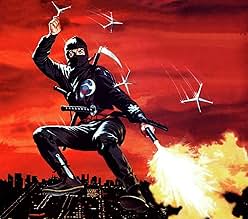

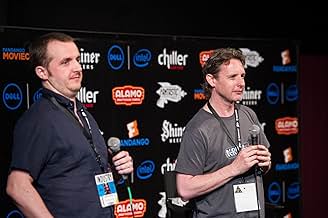
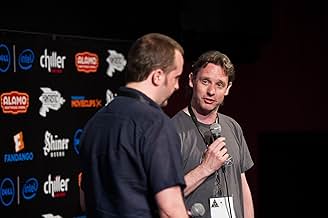
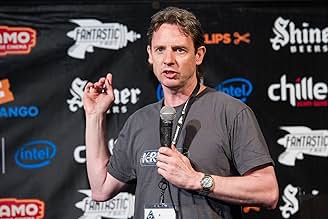

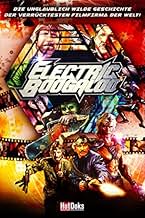
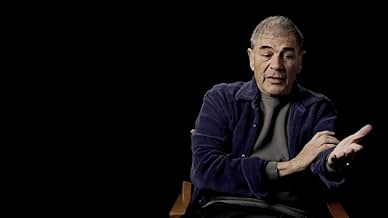
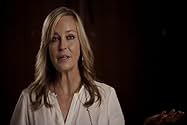














![[REC] 4: Apocalypse](https://m.media-amazon.com/images/M/MV5BMzI1MWVjMGMtNDgwMS00ODU2LThkYjMtZjU0NDRjZTNhYzJhXkEyXkFqcGc@._V1_QL75_UY207_CR6)






